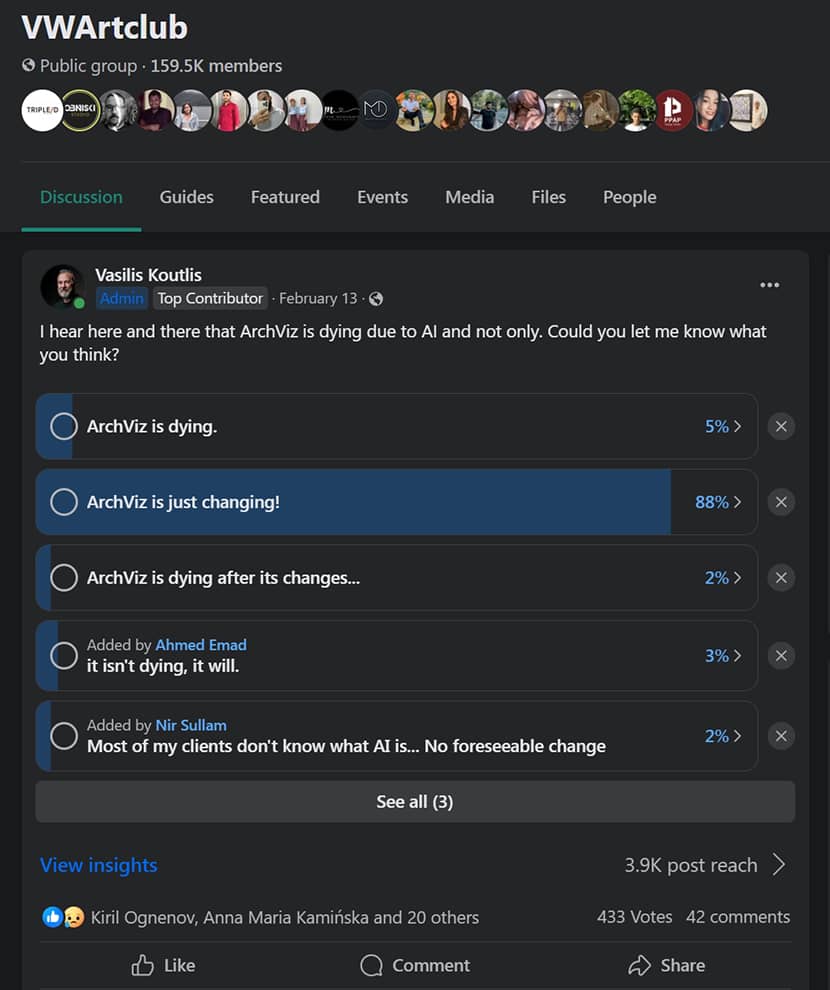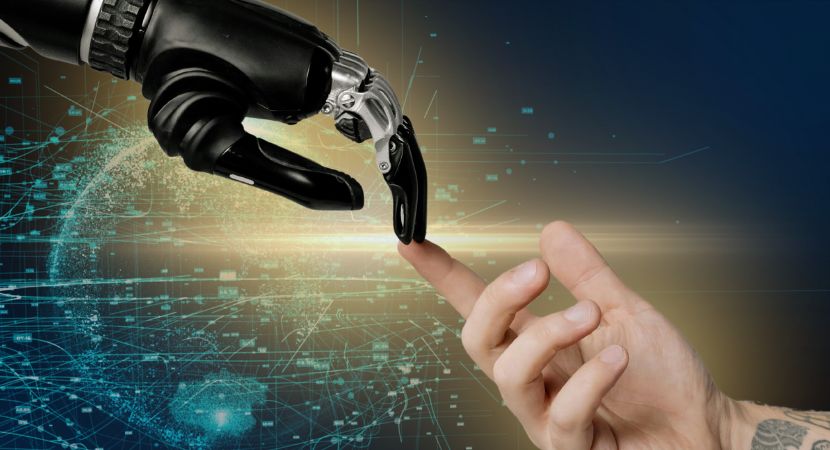
It's a fact that artificial intelligence has already entered the field of 3D art, and not only. In an article, we usually answer the question of the headline after unwrapping all our arguments. In this AI-related article, we can start the opposite way, answering directly that "Only one God knows". Let's expand on the hottest questions that struggle with our community.
Will AI Replace 3D Artists, 3D Modelers, or Architects Any Time Soon?
AI-generated art is already here, and it definitely comes to stay. If we don't see that or try to avoid the tsunami by drinking mojitos on our chaise longue close to the sandy beach, then we simply sleep upright!

I always prefer to wait before forming an opinion about something new. Sometimes, this is an advantage, while other times, it is a disadvantage. In this case, I understand that I should have started my research earlier, but better late than never.
My research on how someone becomes an "Artist Instantly" (AI) reminds me of my first steps as a 3D artist, when I read so much just to deeply understand that new technology and what all these software and renderer settings offer to an image.
So many AI tools have been created in less than two years, a technology that runs enormously fast. Some essential tools are free, and you can install them locally in your workstation (heavy files) using your PC power (GPU or CPU) to produce AI images. In contrast, others are online and under a subscription package, as they make things easier for you, producing images with their power.
I've also realized that if our existing tools, such as 3D modeling software, render engines, and post-production tools, won't implement and adopt this new technology, they must find another way to survive. They are probably a bit late, a few steps back, but we also see that they started announcing new things.
Some additional conclusions I made from this AI research are:
1. Creativity, in terms of an artist's skills, is dying as it tends to be replaced by machines. Nevertheless, creativity in terms of mind/imagination is still here.
2. Many professions will be negatively affected, especially those dealing with technology. However, we can predict that new job positions will open.
3. Smaller companies will probably stop existing or be acquired by bigger ones.
4. Freelancing will be much more complex than in the previous decade.
5. Speed and quality are something that humanity has always been searching for, and as this technology can offer that, it came to stay.
As I already mentioned, AI technology evolves very fast, and thus my conclusions change monthly. I'm also influenced by friends who expose their thoughts. You can check their opinions in a post on VWArtclub *Group on Facebook.
Here are some of the reasons why AI is unlikely to replace these professionals completely:
- Creativity and innovation: AI is still not very good at developing new ideas or concepts. We are still needed to develop a project's creative vision.
- Understanding human needs and desires: AI can generate many different design options but cannot determine which option is the best for a particular user or situation. Creators need to have a deep understanding of human needs and desires in order to create designs that are both functional and aesthetically pleasing.
- Technical skills and expertise: AI can automate some of the tasks involved in 3D modeling and architecture but cannot do everything. Humans still need to have a strong understanding of the technical aspects of their professions to use AI tools effectively and troubleshoot any problems that arise.
Let's start by checking some of the AI abilities.
Can AI generate 3D models?
AI is making big waves in the world of 3D modeling, and it can generate variations of 3D models based on user input. We can observe many artifacts and things that look bad in all these AI applications, but also keep in mind that we are only at the beginning. Here are some examples of AI tools that can create 3D models:
- Text-to-3D: These tools allow you to describe a 3D model with text, and the AI will generate the model. Examples include 3DFY.ai and Spline (waitlist for text-to-3D feature).
- Image-to-3D generation: Some AI tools can generate 3D models from 2D images. One example is NeROIC.
- AI-assisted 3D modeling: These tools provide features like automatic retopology and variation generation to streamline the 3D modeling process. Meshcapade is an example of this type of tool.
Can AI create photorealistic images of architectural designs?
Yes, it definitely can. Maybe the production process's consistency is still inaccurate, but its monthly improvement is prominent. It seems like nothing can be automated to perfection, and the artist's hand and, most of all, his mind and soul are still behind AI. Ah.., and some basic Photoshop skills!
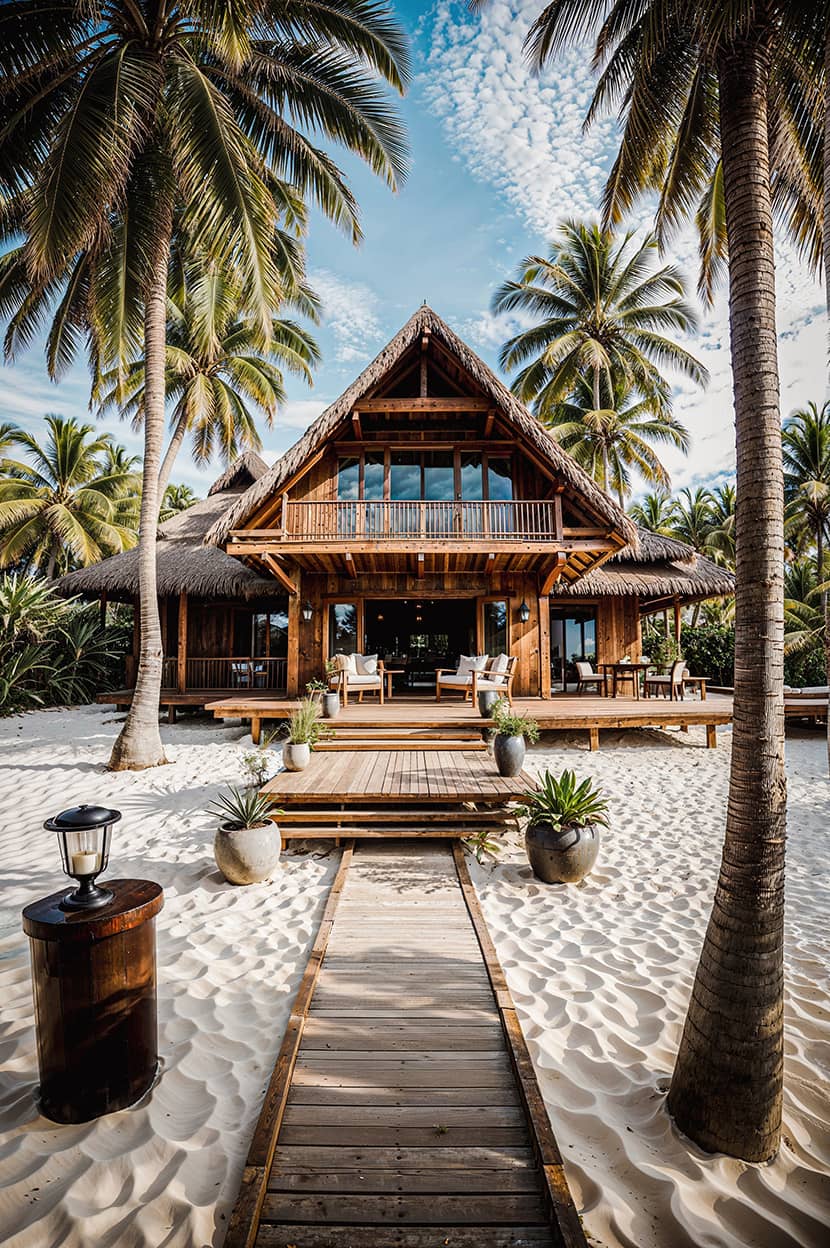
I produced a full AI image with Leonardo Ai, trying to represent a seaside villa in the Maldives. The process was not a "one-click render button". It took many tests for the desired composition and photorealism, then upscaling with several tests in Magnific AI to increase the realism as well as the definition of the image, and finally, a lot of Post-Production in Photoshop to mix the several results until I reached the level of quality I was satisfied with. Looking closely at all the AI images, we notice several bugs and artifacts. The typical finding is that the more you work on an image, the better it becomes, and I don't think this will ever be eliminated.
Can AI create photorealistic images of food or products?
Yeap! It can almost create whatever you can imagine, giving you several options from which you can select your favorite one, and then you can continue with an image-to-image process to add, remove, or even correct things you don’t like. For this set of images below, I started with Gemini to help me with prompting, and after that, I followed a similar workflow as the one I described above.
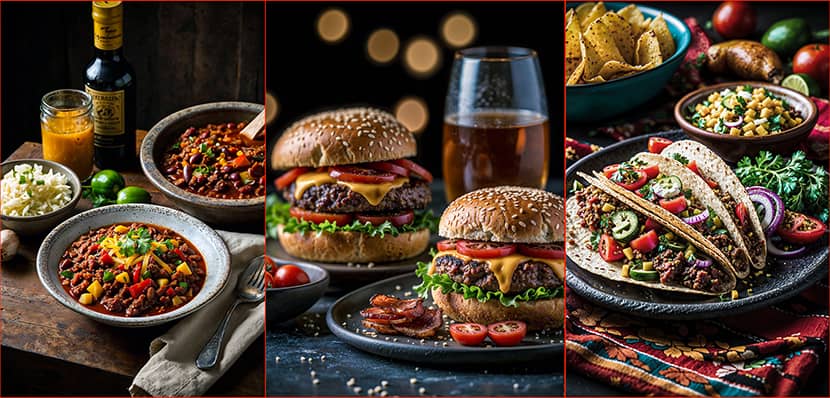
Can AI create photorealistic images of humans?
Sure, and here is AI's most vital point: if we exclude the fingers and toes, which are usually problematic and need further work to make them look natural. Inspired by ancient Greek mythology, I tried to create several AI portraits of the heroes from Homer's epic Odyssey. The one below is Circe, the majestic figure of Odysseus' illegal love, famous for her magic power and abilities.
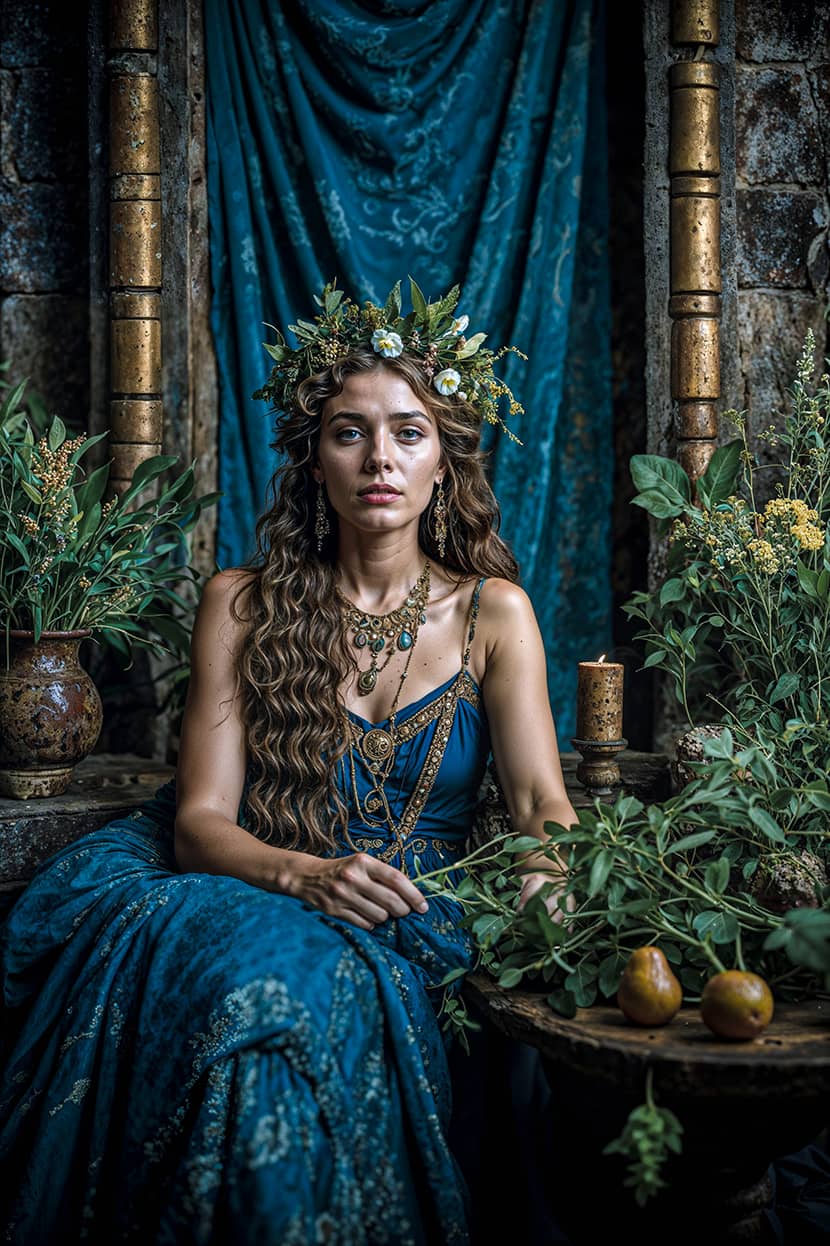
Can AI enhance full 3D images?
Well, this is the topic I searched most for during the last two months. I tried a dozen enhancers that usually work with upscaling. The best one I have found is MagnificAI, which enhances your images, adding fine details everywhere. It improves vegetation, wood, fabric, and reflections.
Additionally, people, when you crop them at a resolution of 500-600px to upscale them. It is also very good when it adds dirt details; I would say it is exceptional. The example below is a good one for understanding how much an image can be improved using upscaling. You can check out the improvements that were applied to the original image on my Instagram account.
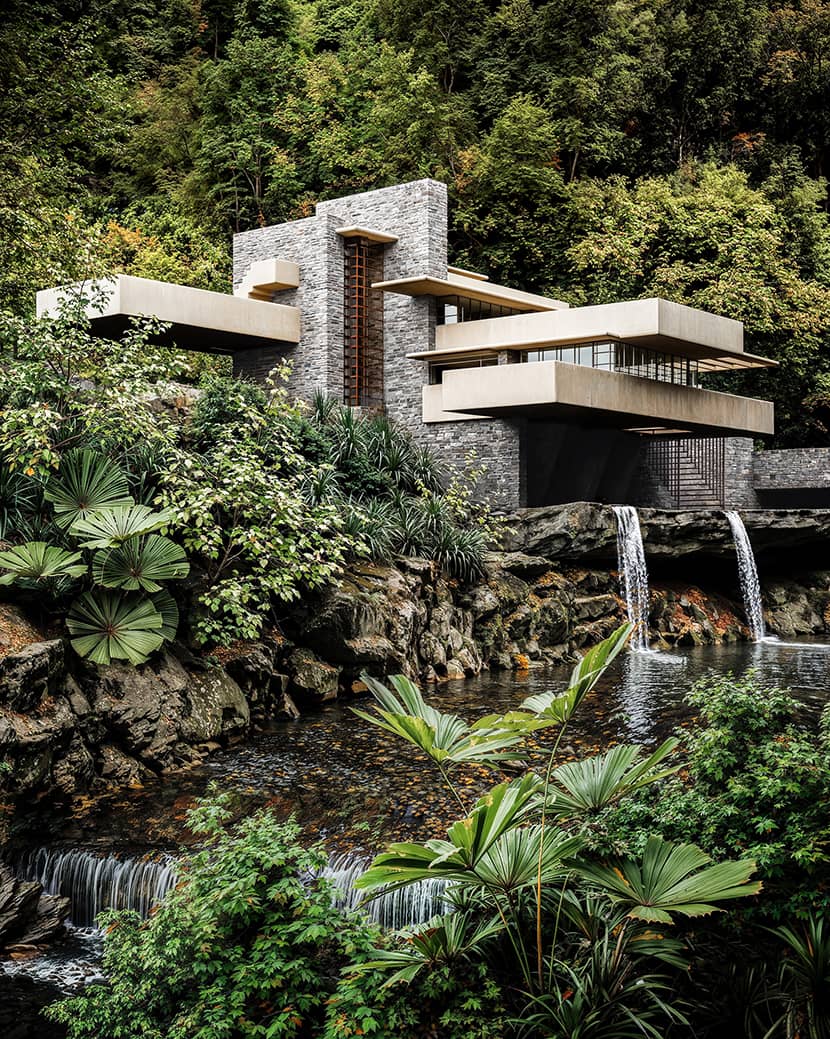 "Fallingwater House" by Frank Lloyd Wright | 3D Artwork: Sebastian Vidal | Upscaling & Post-Production: Vasilis Koutlis.
"Fallingwater House" by Frank Lloyd Wright | 3D Artwork: Sebastian Vidal | Upscaling & Post-Production: Vasilis Koutlis.
Which AI applications are the best for creating images?
Like in 3D, with modeling software and renderers, the same happens in the AI field. All of them are good according to your taste, what you want to produce with them, how user-friendly you find them, and so on.
Except for the AI tools I mentioned above, here is a list of the most interesting ones I have found so far, along with a few words for each.
| Midjourney | Stable Diffusion | DALL·E |
| Veras | Leonardo | Krea |
| PromeAI | LookX AI | MNML AI |
| NightCafe | Deep Dream Generator | DreamStudio |
| Subsurface scatter | Denoising | Material assignments |
| Fotor | Craiyon | Bing Image Creator |
A few words and a small presentation of AI generation tools
Midjourney is an AI tool that can generate images from descriptions you provide in text format. These descriptions are called prompts. It's like having a super-powered illustrator who can bring your ideas to life with just words.
Stable Diffusion is a cutting-edge AI tool that lets you create images based on text descriptions. It's like having a powerful image-generating machine that understands your words and translates them into realistic or artistic visuals.
DALL·E is a series of image generation models created by OpenAI. They are known for their ability to create realistic and creative imagery based on textual descriptions. There are currently three versions.
Veras is an AI-powered visualization tool designed for the architectural industry. It works alongside design software like SketchUp, Revit, and Rhino, helping architects bring their ideas to life. Veras offers AI-powered visualization, prompt-based guidance, Material and geometry control, interactive exploration, and Selection rendering.
LeonardoAi is an AI-powered tool that lets you create images and art using text descriptions. It's known for its artistic outputs, which have been particularly useful for generating concept art for video games and, recently, for hyper-realistic architectural images.
Krea is a web-based tool that leverages artificial intelligence to assist creative professionals in finding and generating images for their projects. It caters to designers, artists, and anyone who needs visuals for their work. Krea offers a user-friendly interface, image search, and image generation. If you're interested in exploring AI-powered visuals for your creative projects, Krea has a free tier available.
PromeAI is an AI-powered design assistant that helps users create various creative outputs, from images and graphics to videos and animations. It has free and paid plans for image generation, controllable art styles, and use in various design fields.
LookX AI focuses on artificial intelligence, specifically in architectural design. It comprises a team combining architects, AI specialists, and designers. Their main product is a cloud-based platform designed for architects and related professions. It leverages AI to assist with various aspects of the architectural design process, such as inspiration generation, 3D model creation, model training, and sharing with the community.
MNML AI "minimal" is an AI assistant designed for architects and interior designers. It helps them streamline their workflow by automating tasks like rendering and generating design variations.
NightCafe AI is an online platform that utilizes artificial intelligence to create digital art. It's suitable for AI art generation tools using Text-to-Image. You can upload an existing photo and apply various artistic styles, creating a new digital art piece. NightCafe also employs various advanced algorithms, including Stable Diffusion and DALL-E 2, to deliver diverse artistic outcomes.
Deep Dream Generator caters to users interested in creating art through AI. It offers AI image generation and multiple creation modes. You can also fine-tune the generation process with various settings, such as size, color scheme, and artistic style. Finally, the platform allows you to create a profile, share your creations, and connect with other users who enjoy AI-generated art.
DreamStudio is like a magic paintbrush that understands your words and translates them into pictures. It allows anyone to explore their creativity and bring ideas to life with the help of AI.
Craiyon AI is a free tool that uses artificial intelligence to generate images based on your descriptions. It's like having a creative partner who can illustrate your ideas with text prompts. It uses a machine-learning model to understand the relationships between words and visual concepts.
Bing Image Creator AI, also known as Image Creator from Designer, is a tool that lets you generate images using text descriptions. You can create images based on your words. You describe what you want in an image, and Bing Image Creator uses artificial intelligence to generate a picture matching your description.
Navigating the Challenges of AI Art
Some people claim that AI can free up 3D artists, 3D modelers, and architects to focus on more creative and strategic work by automating all these tasks. In the future, AI is likely to become even more sophisticated and play an even more significant role in these professions. However, it is essential to remember that AI is a tool, and like any tool, it can be used for good or bad. The future of these professions will depend on how humans and AI work together to create the best possible outcomes.
Ethical Consideration: Why are 3D artists worried about AI?
For two reasonable reasons.
- Efficiency: AI is getting really good at generating 3D assets quickly. This could potentially replace some of the tasks currently done by human artists, especially repetitive ones.
- Skill Threshold: AI tools could lower the barrier to entry for 3D art. This means more people could create primary 3D assets, potentially saturating the market for more straightforward work.
We made a poll on VWArtclub *Group related to this topic, and the results were optimistically positive.
Are human artists still irreplaceable?
Definitely yes! It's important to remember, that AI isn't perfect yet, and here's why human artists are still irreplaceable:
- Creativity & Originality: AI works best with a clear idea and much reference data. Coming up with genuinely unique concepts is still very much a human strength.
- Technical Expertise: While AI can create essential assets, a skilled artist must tackle complex projects that require in-depth knowledge of anatomy, lighting, and other technical aspects.
- Human Touch: There's a certain quality to the art humans create that AI can't quite capture. The ability to imbue a creation with emotion and meaning is a human advantage.
Overall, AI is likely to be a tool that assists 3D artists rather than replacing them. The future of 3D art will probably involve artists who can leverage both, their creativity and technical skills alongside AI tools.
What’s the conclusion about AI art after it came to our planet?
Well, I'm saying this today, and I might have another opinion tomorrow. I'm not trying to cover my back, but I'm also not a prophet who predicts the future. At this moment, with the data we have on our hands, I think that AI is unlikely to completely replace 3D artists, 3D modelers, photographers, or architects in the near future. However, AI is already significantly impacting these professions by automating repetitive tasks and assisting with complex design processes. In conclusion, AI is a powerful tool that can be used to improve efficiency and productivity. However, it is unlikely to replace these professions entirely in the foreseeable future.
"Until the end of the world"
Kind regards & keep rendering! 🧡
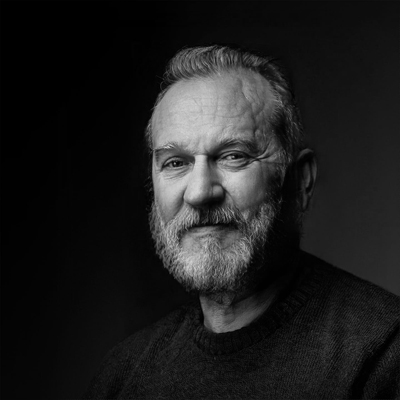
About the author
Vasilis Koutlis, the founder of VWArtclub, was born in Athens in 1979. After studying furniture design and decoration, he started dedicating himself to 3D art in 2002. In 2012, the idea of VWArtclub was born: an active 3D community that has grown over the last 12 years into one of the largest online 3D communities worldwide, with over 160 thousand members. He acquired partners worldwide, and various collaborators trusted him with their ideas as he rewarded them with his consistent state-of-the-art services. Not a moment goes by without him thinking of a beautiful image; thus, he is never concerned with time but only with the design's quality.
Test the Rebus Render Farm for Free

